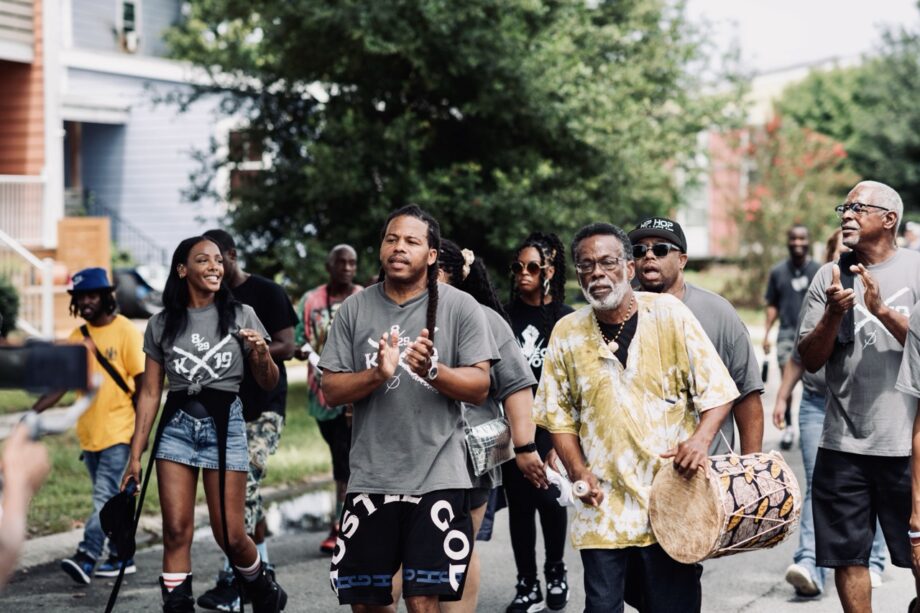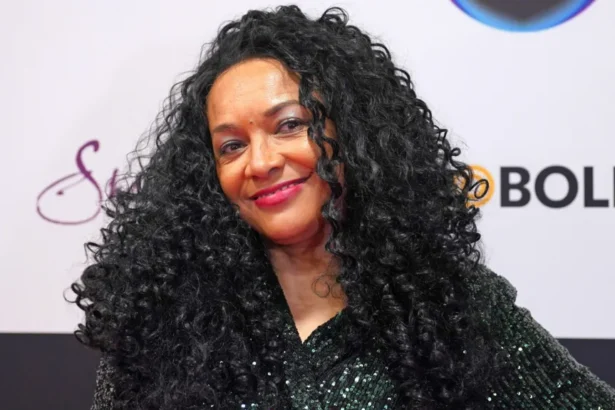In Oakland’s Lower Bottoms, a once-polluted truck corridor has been transformed into a green oasis — solar panels now shimmer above vibrant community gardens, and kids say they can play outside without the familiar sting of wheezing lungs. It’s a vision of environmental justice led by Black communities, and it’s happening all across the country.
From Atlanta’s Westside to Chicago’s South Side, Black neighborhoods are driving bold, innovative climate solutions rooted in community pride and collective action. These efforts aren’t just about survival in the face of systemic neglect — they’re building a future that thrives despite political hostility.
At Capital B, we’ve spent the year reporting on these bold, innovative efforts, perhaps demonstrating that change starts from the ground up. Below, we’ll highlight just a few of these solutions, but rest assured there are dozens more that illustrate the self-sufficiency of Black communities as they work to make sure they have clean air, clean water, and healthy foods.
Detroit’s Black-led co-op offers fresh food and a fresh start
After close to a dozen years of planning, a new, Black-led, cooperatively owned grocery store has opened its doors in Detroit’s North End, bringing fresh hope — and fresh produce — to the community. The Detroit People’s Food Co-op is a $21 million, community-powered project launched by the Detroit Black Community Food Sovereignty Network and Develop Detroit. Inside the co-op, shoppers can find a selection of often organic yet culturally relevant foods, such as greens, beans, and rice. Many of the healthier options are sourced from local Black-run urban farms, like DTown Farms and the Oakland Avenue Urban Farm.
As many Detroiters struggle to regularly find affordable, nutrient-rich products, the co-op aims to put control back in the hands of neighbors. It supports over 40 local vendors, boosts the local economy, and helps consumers think differently about the way we grocery shop. The co-op might be an indication of how successful efforts like it can be when people determined to make change create their own pathways to health and sustainability.
Read More: People’s Food Co-op Rewrites Economics in Detroit Grocery Battle
Standing tall in south Memphis
After two decades of struggle, Black-led environmental advocates in Tennessee were finally able to celebrate what appears to be a true victory: the closure of a Memphis facility that had one of the nation’s highest cancer risks related to air pollution.
Faced with regulatory inaction at the county level, community members, supported by groups such as Memphis Community Against Pollution and the Southern Environmental Law Center, persisted in their efforts to close Tennessee Sterilization Services, which specialized in cleaning medical equipment.
Advocates say that the fight isn’t over. They say the company’s closure doesn’t erase decades of exposure, and local activists demand accountability and investment in a green future. “This was never just about one plant,” said KeShaun Pearson, a local environmental activist. “It’s about justice, health, and dignity for a majority-Black community standing up for what’s right.”
Read More: South Memphis Celebrates its Collective Power After Closure of Toxic Facility
A Black farmer’s fight for soil and soul in North Carolina
In the early ’80s, Arthur Brown laid down across a dirt road to block dump trucks carrying toxic, PCB-contaminated soil into Warren County, North Carolina. Even though officials ignored his protest and the dumping continued, his efforts helped spark the national environmental justice movement. His message was clear: poor, majority-Black communities shouldn’t be dumping grounds.
Today, his son Patrick Brown tends the same contaminated soil on the site of the plantation where his ancestors were enslaved. He inherited not only family farmland, but also his father’s determination to reclaim and restore what he said was once stolen and polluted. Patrick grows vegetables and hemp, using organic, soil-friendly methods, supporting both human health and the climate. What began decades ago as one man lying in the dust, has grown into an enduring movement. He’s turned a site of his family’s pain into a center for education and empowerment.
Read More: Black Earth
A self-sustaining future in Chicago
Deep in Chicago’s South Side, advocates say a major transformation is unfolding. Blacks in Green, a local environmental justice organization, is breathing life into what they call a “sustainable square mile.” The concept is what the group describes as an effort to turn a neighborhood long ignored by policymakers into a self-reliant, thriving community. At the heart is Emmett Till’s childhood home, set to become a theater, farm, and museum by next year — each space bearing witness to a story of resilience and the light of possibility, group leaders say.
Solar panels and geothermal grids will ensure clean, cheap power for local families. Community farms are growing fresh produce with the goal of putting an end to food scarcity. The organization said affordable homes are being constructed so residents can thrive in their own neighborhood and not be pushed out. Climate-resilient hubs will not only provide safe shelter from extreme weather, but new job training programs in green industries. Advocates say the effort means that better livelihoods, not just better patchwork services, are coming to stay. They view it as a homegrown victory that is crafted to last through any turbulent federal administration.
Read More: Can ‘Biden’s Billions’ Deliver True Environmental Justice?
A power shift in Plantation Country
In southern Louisiana, twin sisters Jo and Joy Banner’s successful effort to block a massive grain terminal next to their home and secure the purchase of their ancestral plantation stands as a landmark victory in an ongoing struggle against corporate pollution and racial injustice. For years, these Black women have fought against contamination in their own community. Advocates say that the twin sisters not only managed to halt a proposed $800 million project but also reclaimed a piece of history by buying a plantation, showing the depth of their resolve and the potency of Black-led environmental activism despite attempts to stifle it.
By buying the plantation, the Banner sisters said they want to upend centuries of racial hierarchy embedded in the very soil of the land. At a time when Louisiana’s Republican governor is inviting more industrial development and curbing avenues for Black activism, supporters say the Banner sisters’ victory shows that power may still ultimately lie with communities.
Amid continuous attempts to deplatform them, advocates say these activists are demonstrating how communities historically left behind are working to guide the solutions that will move them forward. They’re modeling a future where Black environmental activists can claim land, shape policy, and thrive even in the face of adversity.
Read More: Black Women are Leading the Fight Against Polluters in Louisiana — and They’re Winning
If you have a victory that you’d like to highlight from your own community, please email Capital B’s climate and environment reporter Adam Mahoney at [email protected].




